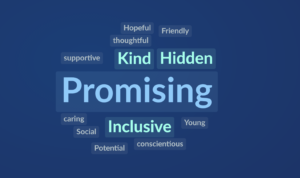A student blog as part of the Doctoral Exchange series organised by the Doctoral College.
This year there have been several events to mark LGBT+ History Month at the university. I was very pleased to offer a dedicated space for LGBT+ doctoral students at Bath by hosting a Doctoral Exchange session at the end of the month. The value of coming together to talk about the intersection of our LGBT+ and doctoral experiences was evident throughout our conversation. Here are a few musings from our discussion.
How being LGBT+ influences our doctoral experience
In terms of if our LGBT+ identities led us to where we are today, some people felt that their LGBT+ identity related directly to their chosen research areas. On the other hand, others did not feel that their LGBT+ identity had impacted their decision to study at all.
One person described that LGBT+ topics can be difficult to address in research, especially in their experience of interviewing participants who hold homophobic viewpoints. We talked about boundaries and needing to leave your personal views out of your research sometimes, but you can actively seek out opportunities to get involved in the LGBT+ community outside of your research.
Although our LGBT+ identities do not always form a part of our research, they can provide opportunities for personal and professional growth or open unexpected pathways. Another person described that attending an LGBT+ workshop as part of a larger conference led to a personal connection which has been formative for them professionally and academically.
The takeaway message here is to acknowledge how your LGBT+ identity affects and is affected by your personal situation in order to explore opportunities that feel right for you.
Some challenges associated with our LGBT+ identities
What should you do if a great job opportunity comes up, but you know the field is not known for its inclusivity? What about the intersectionality with other diversity concerns, such as ethnicity? The ideal situation would of course be to find an inclusive employer that is offering a good opportunity. That said, we acknowledged that this is not always the case in practice. Whilst a lack of visible inclusivity could be a red flag, sometimes the role is more important.
We also shared experiences of coming out to our supervisors and peers. One person described how they usually “come out from Day Zero” when joining a new institution so that it is out of the way and the conversation can move on to more interesting stuff. A simple approach is to just drop in some obvious statements in casual conversation. Depending on how appropriate it is, you could also invite a conversation about how it impacts you academically, for example, asking your supervisor how to manage personal values with conflicting participant comments in interviews.
Another challenge related to hidden identities, for example, the bi experience of feeling invisible when in a heterosexual relationship. Some people commented that it helped them to know other people around them who were out as gay or bi and how this made it easier to come out themselves. Equally, being able to easily recognise allies can help so you know who you can talk to.
I think there is an important message here for supervisors and the Doctoral College: It really is important to actively show your commitment to and understanding of LGBT+ inclusivity, because it can be easier for an LGBT+ person to come out after seeing a clear symbol of support.
Importance of LGBT+ and doctoral spaces
We talked about the benefits of networking in LGBT+ spaces and visible LGBT+ mentors. In particular, LGBT+ spaces can enable us to bring up topics that otherwise would feel out of place. For example, one person described that when talking about international postdocs, it felt more natural to talk about how the culture around LGBT+ identities might be less accepting in some countries, which might not have come up in a standard event about postdocs.
We also discussed the importance of doctoral-only spaces for LGBT+ students because our experience as doctoral students differs both to that of undergraduate students and of staff. Small group networking opportunities like the Doctoral Exchange session can provide that platform to experience a combination of social, informal, and academic discussion points.
The future of LGBT+ doctoral experience at Bath
At the end of the session, we brought the conversation back to Bath. I asked everyone to write some words that they would use to describe the LGBT+ community at the University of Bath based on our Exchange session and experiences to date. The word cloud below shows a wonderfully positive outlook and I hope that we can continue to support both the doctoral and wider LGBT+ communities to flourish at the University of Bath.

About Doctoral Exchange
This blog was written as part of the Doctoral Exchange series, a round-table discussion series for doctoral researchers to share experiences and ideas in a peer-to-peer environment. All topics are student-led. The programme can be found online on the Doctoral Exchange webpage. If you are interested in facilitating a session then please email doctoralengagement@bath.ac.uk.
Respond